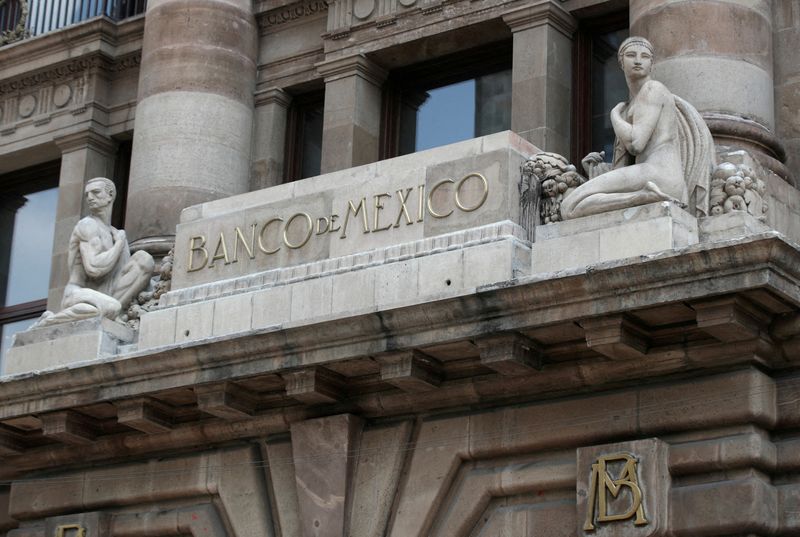Bank of Mexico policymakers cautious on rate outlook as inflation still sticky
2024.01.04 13:24

© Reuters. FILE PHOTO: Mexico’s Central Bank (Banco de Mexico) building in downtown Mexico City, Mexico August 9, 2022. REUTERS/Henry Romero/File Photo
By Brendan O’Boyle
MEXICO CITY (Reuters) – Most members of the Bank of Mexico’s governing board called for caution as the central bank of Latin America’s No. 2 economy eyes possible rate cuts in the new year, minutes from its last monetary policy meeting showed on Thursday.
The minutes from the Dec. 14 meeting showed the five-member board agreed that Mexico’s benchmark interest rate should be held at its current all-time high for “some time” in order to bring inflation down to the official target.
The Bank of Mexico, known as Banxico, unanimously decided to keep its key rate at 11.25% for a sixth straight time at the December meeting amid sticky inflation.
After peaking in the third quarter of 2022, Mexican annual inflation has fallen steadily, reaching its lowest level since February 2021 in October although it ticked up in November and again in early December.
Most of the board agreed during the meeting that while inflation is expected to reach the bank’s 3% target in the second quarter of 2025, the outlook for rising consumer prices still poses challenges.
In particular, board members pointed to a more gradual slowing of food and services inflation, which influenced the board’s decision to revise headline inflation forecasts upward for some quarters.
In Thursday’s minutes, four members of the board said caution must be exercised when evaluating or communicating monetary policy changes, with the fifth expressing the view that lowering the key lending rate could begin to be discussed at the bank’s next meetings.
One member “expressed that now more than ever a message of prudence and caution must be conveyed,” citing Mexico’s exposure to external and domestic risks and calling for “flexibility in future decisions.”
Compared to Latin American peers, Mexico’s central bank has been reluctant to begin a monetary easing cycle, even as regional neighbors like Brazil and Chile cut rates in the face of slowing inflation.








